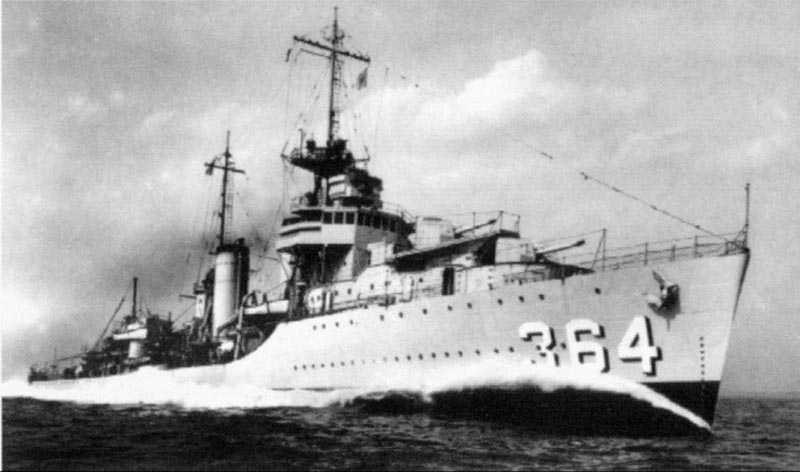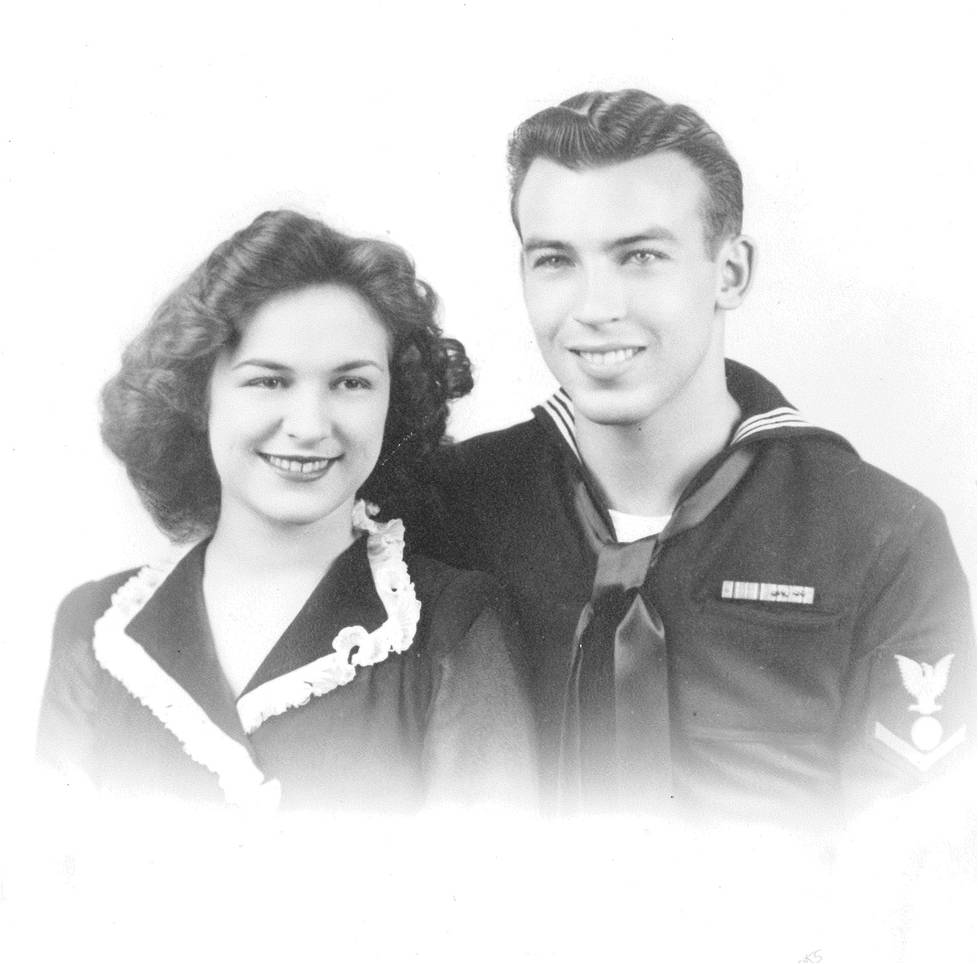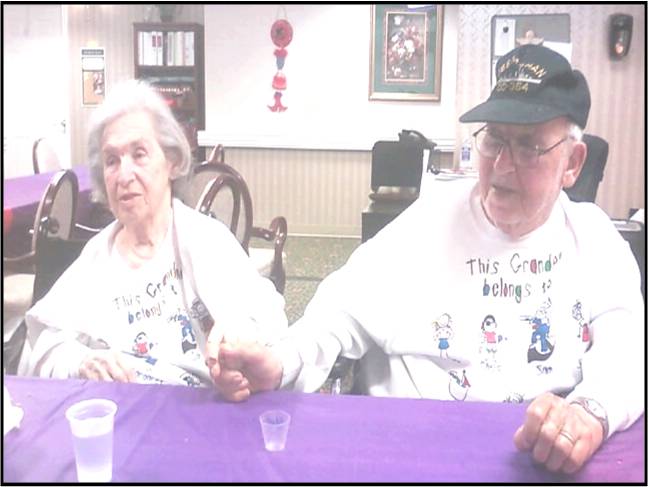Tomorrow is the eightieth anniversary of the Japanese attack on Pearl Harbor, and I want to take the opportunity to honor my late father, Edwin McKenzie. As you’ll see, December 7th loomed large in his life more than once.
Dad was not yet in the service in 1941. He graduated from high school in the little town of Athens, Tennessee in the spring of that year and enlisted in the U.S. Navy not long after the Japanese attack on Pearl Harbor the following December. After a few weeks of basic training in San Diego, he was assigned to the destroyer U. S. S. Mahan as an electrician’s mate and headed for the South Pacific. For the next two years he served constantly in the theater of war, taking part in the campaign for Guadalcanal, the Battle of the Santa Cruz Islands, and a variety of smaller operations around New Guinea and the Admiralty Islands.

In early 1944 Mahan was ordered back to California for overhaul and Dad was granted a thirty-day leave upon arrival. He took the train from San Diego to Chattanooga, and then a bus from Chattanooga to Athens, arriving on a Sunday evening in late April, where he was met by a host of family, friends, and Margaret Lee Hale, the woman he had proposed to countless times since leaving Athens.
My parents had met for the first time in the summer of 1937, shortly after my father’s family moved back to Tennessee from California. My mom, all of twelve years old at the time, was in despair (as she told the story), because there was not a single boy in all of Athens that she was interested in marrying. That changed when she met Ed at a town baseball game, and although she protested, she was secretly glad when her girlfriends invited him to her upcoming 13th birthday party. Ed arrived bearing gifts—a handkerchief and Evening in Paris perfume—and won Margaret Lee’s heart.

The couple became sweethearts, and they might have gotten serious about marriage had not war intervened. They were coming out of a movie in Chattanooga on Sunday afternoon, December 7, 1941, when they heard of the Japanese attack on Pearl Harbor. (Mom felt guilty about going to the picture show on a Sunday and feared that something bad might come of it, but she didn’t expect World War Two.) Within a few months Dad was halfway around the world in a global conflagration. Over the next three years the couple exchanged hundreds of love letters, 545 of which survive. As my dad’s leave drew near, he regularly raised the prospect of marriage. My mom just as regularly ignored him. He renewed his plea almost as soon as he stepped down from the train, however, and my mom couldn’t resist. Four days later they were married. Less than three weeks after that Dad was headed back overseas.
Seven months later, in the late fall of 1944, Mahan was operating off the coast of the Philippines, patrolling for submarines and assisting with an amphibious landing near Ormoc Bay as part of General Douglas MacArthur’s promised return. On December 7, 1944—three years to the day after the attack on Pearl Harbor—three Japanese kamikaze bombers crashed into Mahan, and in short order the destroyer was in flames, one of the magazines had exploded, and a plume of black smoke was rising hundreds of yards into the air.
Years later, a sailor on the U.S.S. Walke recalled the aftermath in these words:
We were heading for Mahan at high speed from about 1-2 miles away. Our Captain thought to lay us alongside to help fight fires. She was dead in the water under a huge column of black smoke. We could see flames in her bridge area. As we got closer we could see fire hoses in action. At this time our guns were firing so we did not hear, but we saw what appeared to be an explosion forward of the bridge. We were coming in on her port side when we saw her men beginning to abandon. At the same time a big raid developed and we had to pull away. During a lull in the battle, we returned to the area and began to pick up survivors. Twice we had to pull away to fight off raids, returning to pick up her people. Another destroyer was aiding in this. Some of the survivors were horribly burned and many were otherwise wounded. There was heavy fuel oil in the water and a lot of the men were sick and vomiting. I believe we got them all. . . .
Dad was always willing to share this much, but no more. What he felt when he heard the crash of the Kamikazes, what he thought when the forward magazine on the Mahan exploded, what he saw as he headed toward the side, what went through his mind when he jumped into the oil-coated bay, what, perhaps, he prayed as he bobbed in the water while the battle continued to rage—those are things Dad never once offered to share.
Praise be to God, Dad survived the attack. In a heart-wrenching “snafu,” the Navy Department inadvertently released the news of the sinking of Mahan before all of the crewmembers’ families could be notified, so my mother heard on the radio that Dad’s ship had gone down before she heard from Dad that he was OK. I cannot imagine the extremes of emotion she must have felt, although Mom always insisted that she knew in her heart that Dad would come back to her. And so he did.
My mom passed away on Christmas Eve 2011, and Dad followed her not quite six years later. By the time of Mon’s death, she and Dad had enjoyed sixty-seven years as husband and wife (74 years after Dad first showed up on her front porch bearing a handkerchief and perfume). The last picture that I have of them together is when they were both living in an assisted-living facility,

My mom passed away on Christmas Eve 2011, and Dad followed her not quite six years later. By the time of Mon’s death, she and Dad had enjoyed sixty-seven years as husband and wife (74 years after Dad first showed up on her front porch bearing a handkerchief and perfume). The last picture that I have of them together is when they were both living in an assisted-living facility, and dad is wearing a sweatshirt with the names of his children and grandchildren, and on his head a blue ball cap with insignia USS Mahan, DD-364. Nothing could have been more fitting, for those were the two loves of his life.